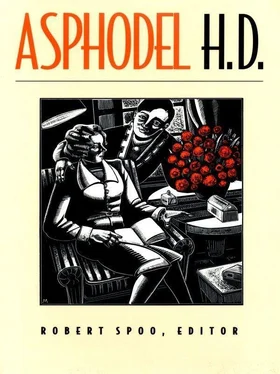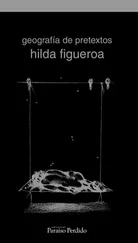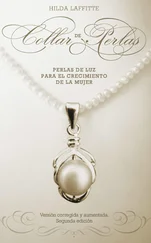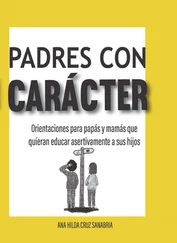The Dalton woman and the petunia were both forgotten. Waves of cold mountain water had extinguished them. There was no colour where this was. The music was transparent. Who said there was colour in music? Someone, somewhere. People now were always saying it. Colour in music, tones, sound in pictures. Colour. There was no colour in this thing.
Back of the piano where the curtain of gold gauze shut out or lured in the most tender of silver mists, back of the gold curtain that was a gold net under the sea, to lure, to entrap, back of the curtain, no before the curtain, water welled up, up, up. It welled in bubbling sound. This was not the sea-floor. There were bits of coral to be sure — but that was the odd earring turned toward her of someone — the Dalton woman? — while the other ear (whose?) was turned to catch the music. Ears. Ears. Ears. There were ears tilted up, ears tilted down, ears side-ways. Ears were shells, were flowers, and into those ears (impersonal ears) the music poured and flowed, impersonal, everyone might listen, Hermione, the Dalton woman. Delia. This was Delia’s concert. Anyone might listen for Delia being above suspicion might have anyone in to listen. Going on and on. A fountain of icy water that bubbled up from a sea floor. Arethusa was a fountain that ran under the sea, ran under the sea from Italy (or Greece was it?) straight to Sicily. Sicily. A fountain in Sicily. There were hot banks of fruit, almonds, hot grapes, petunia-coloured grapes and purple figs. Walter had nothing to do with them. He was the water simply that welled up and up. Up and up. He was the water simply. Fresh water, mountain water that ran and ran and ran. . people were ears simply. People weren’t people. Odd ears. To be washed. O wash your ears. You’re always forgetting your ears . Eugenia. Would Eugenia like this music? She liked Bach. If you called Bach music then this was nothing at all. It wasn’t anything. Only water, bubbling, bubbling, running, running. Water. She was the thing it flowed toward. Hermione was the impersonal thing it flowed toward. Walter was tired, his great head hung heavy on his heavy young body. The great head that was the stricken head of a wounded Hermes hung down, heavy; faster, faster, the hands were heavy, solid. How could water flow so simply from hands that were so solid? On. On. On. He had asked her to come to Delia’s (though Delia had asked her anyway) so that he wouldn’t too much hate the people. People. Hating people. Where was this taking her? “I would like to have a little knife, a sharp little knife. And I would like to turn and turn and turn that knife in Dowel’s heart. Really. I’d like to do that and say so simply, now you feel .” Who was saying that? O who dared say that? This is how people hated Walter. Really, really hated Walter. Who dared, who dared say that of Walter? A face was leaning toward another face, a thin highly tinted fox-shaped face with puffs of fox-coloured hair and a red mouth that made a scar and a blatant tint of red on that mouth that seemed purposely to clash with the hair colour. Who so dared speak? A face was leaning over the back of a Chesterfield and was opening tinted lips to someone who was “shuuhing” at it, “he’s going on. For God’s sake don’t be funny.”
Petunias. Hydrangeas. Hydrangeas artificially coloured, mauve (a word she didn’t like but it expressed the other odd woman who had found the ices frizzy. “No, I don’t like them. I find them awfully frizzy.” What ever did the little fool mean?) and the short thick-set man with the monocle—“no not that one, I mean the other one. Not that brute, I mean the one by the window.” But it seemed the one by the window who was leaning toward someone and whispering (why were they all, always surreptitiously whispering) was no more distinguished nor distinguishable from the other, the other one whose monocle was an inch thick, “ought to be an emerald, poor old Caesar.” “You mean Nero.” “I don’t mean either Celandine.” “My name’s not —” “Well it ought to be. And what became of Dizzy’s dance partner?” “You mean Clara ?” How funny. Clara. But that wasn’t her Clara. Not her Clara. Poor Clara. Would Clara have liked this? George said she couldn’t bring them both. He said one or the other and there had been a quarrel at the last and Fay had been half dressed and Hermione had said they mustn’t be late and Fayne had jerked at the dark blue crêpe de chine thing she and Clara had spent the whole afternoon sewing on and pulled out the whole sleeve. “Wait Pau-ul. I can sew it on you.” But Fay had jerked it and pulled the thing leaving a slash on her shoulder. Poor lovely, beautiful, sulky misplaced Fayne Rabb. Fayne was so lovely, lovelier than all this if she would only let herself be. She wouldn’t let herself, let anyone be lovely. Not lovely as flowers are. As flowers must always be. She wanted things in her own way, pulled and tore, “but you — must — feel.” “But I don’t. I don’t, not your way. In my own way. O if you only knew how it went on and on and on. As if a whole book on one single page (like ancient papyrus) rolled on and on.” We are here. We are there . We will go mad being here and there unless we give up simply, stay here and are lost, stay there and are dead. To be here and there at the same time, that is the triumph. Walter was doing that, had been doing that. “O Dowel. Excellent fellow. Starts the ghosts quivering from somewhere in Heine’s inferno.” “ Heine ’s inferno?” “Damn, Celandine. I never was one of you élite lettrée—” “My name’s not—” “Well, it should be.” Flowers. Talk. How odd, how witty they all were. How could they be so perfect, all made up out of a play? Even Walter didn’t see that, how lovely they were, all these people. The people took on a sudden loveliness. Was it because she was thinking of Fayne Rabb? O Fay you should have been here. “Cela—” “O don’t — call me — that.” “What does he call you, Di?” “The brute calls me— Cel— an — dine.” “O — ho. Ho.” That isn’t how people laugh. But how write how people laugh? It is a shivering, a quivering. It’s a letting go. And how delicious. She was letting go, this utterly adorable thin thing in a green gown whose hair was coming down—“Violet.” “Who’s calling me Violet?” “It’s pom-pom over there. She’s lost twenty stone since you last saw her.” “O pom— ”
The Violet of the piece was having hair pins rescued for her. “These jade things will spill.” “You shouldn’t wear jade hair-pins. It’s pre-posterous.” “Yes. Isn’t it. But I won them on a bet—” “A?” “Actually. I won them, and I wear them.” “You lose them you mean. Crawl under the arm-chair Teddy, that’s a darling. No. That’s a house-maid’s hair pin.” “Maybe it’s De-li-a’s.” “Delicious Delia. No. It is quite unworthy. Now why is Delia right and why is Mrs. Shoddy Percy there wrong? They both got their gowns at Berrys.” “Brute.”
They didn’t. They did. “Why look at the V cut as no one else does.” “And the X and the Y and the Z.” “One doesn’t Teddy have a Z on one’s gowns.” “What then Vi-o-let, does one have it on?” “On?” “I mean Vi dear — off—” “Look Teddie. There’s that parasite Jerry Walton. They say he killed his father.” “Really? How interesting. But is it only a rumour?” “No. Solid fact. Poor darling. It meant millions .”
O Fay, where are you dear? Look at the dear people, the funny people, the witty people. There seems no one sad at all, only someone who has broken a lorgnette, poor darling, she holds it up for everyone to see and only half the people care. O but we do care. Don’t cry over it. One can see it’s tortoise shell and set with tiny brilliants. Is it a crest or just your odd initials? What can her name be? O names. People. Charming people. Charming names. “Miss Her Gart, what a quaint, dear person. Little Miss Her Gart you know from Philadelphia.” “From what — ever?” “A place in the Bible, didn’t you know. And unto the angel in Philadelphia, write — Delia’s sister lives there.” “In Asia Minor did you say.” Excavations, yes. Something or other about Rome. Not legations. No. Yes, I think so. Freddie’s bound to do it. Came a cropper last time. “Delia.”
Читать дальше












